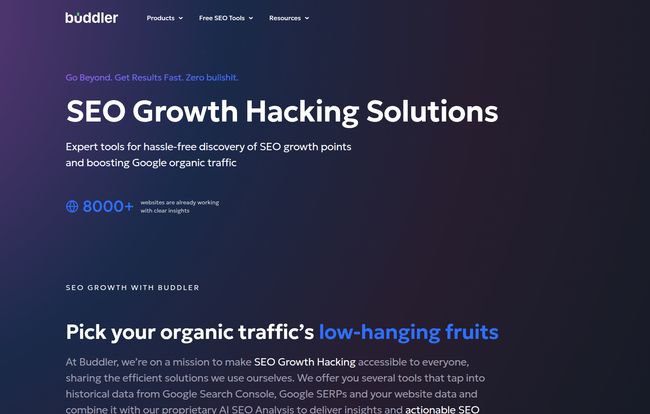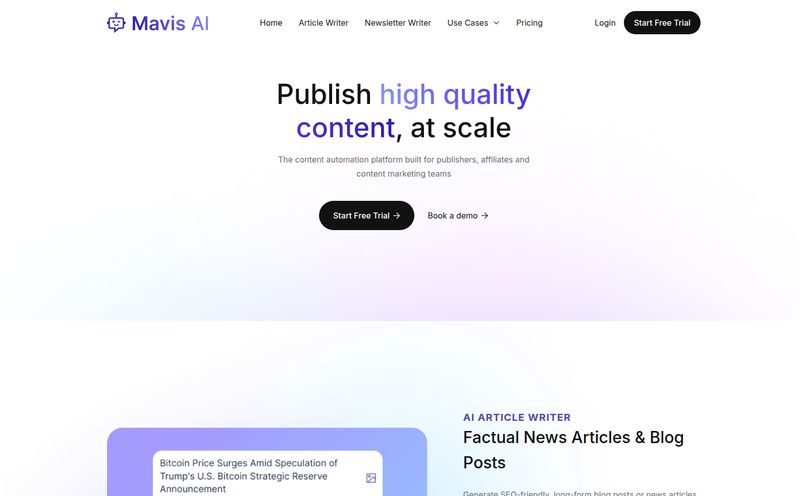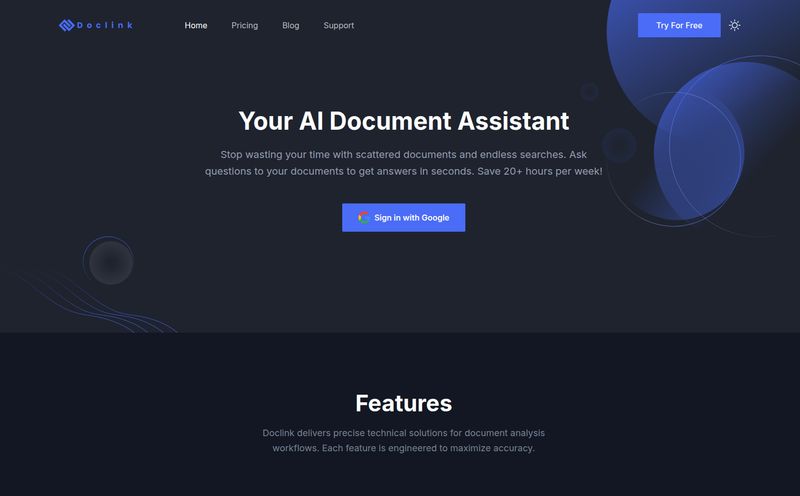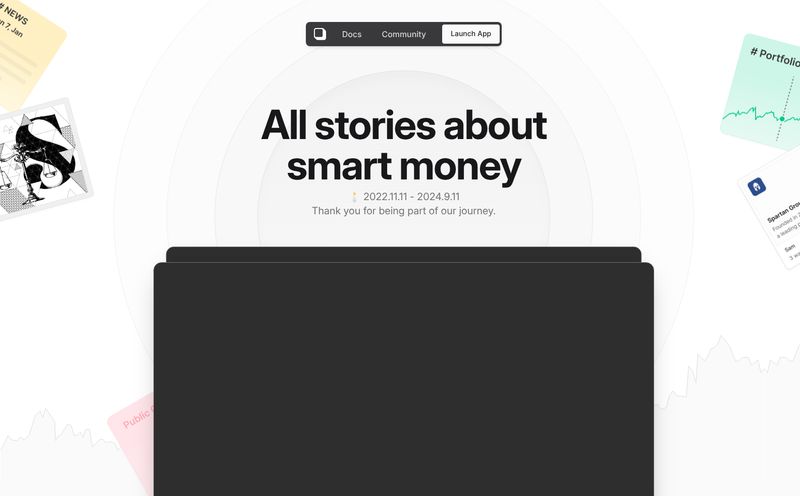I’ve been in the SEO game for a while. Long enough to remember when we all thought building a pyramid of spammy links was the height of sophistication. And in all that time, one truth has become painfully clear: we are absolutely drowning in data. Especially from our beloved, and sometimes infuriating, friend Google Search Console.
Every day, GSC hands us mountains of clicks, impressions, queries, and pages. It’s a goldmine! But it’s also a maze. We all have that dream of a tool that can just sift through the noise, grab us by the shoulders, and say, “Hey! Look here. This is the thing you need to fix. Right now.”
Enter Buddler. It bills itself as an “SEO Growth Hacking” solution, which, I’ll admit, usually makes my eye twitch. The term “growth hacking” has been stretched thinner than my patience during a Google algorithm update. But Buddler’s promise is compelling: it uses AI to analyze your GSC data and pinpoint actionable growth opportunities. The low-hanging fruit, as they put it.
So, does it live up to the hype? Or is it another shiny object in the ever-expanding universe of SEO tools? Let’s get into it.
What Exactly is Buddler? Breaking Down the Hype
At its core, Buddler is an intelligence layer for your Google Search Console data. You hook it up to your account, and instead of you having to manually export CSVs, wrestle with pivot tables, and lose an afternoon to Google Sheets, Buddler’s AI gets to work. It’s looking for patterns, anomalies, and opportunities that are easy to miss with the naked eye.
Think of GSC as a giant, messy library. It has all the information you could ever want, but it’s disorganized, and the librarian only lets you check out 1,000 books at a time (a little nod to the GSC API/UI limits for my fellow data nerds). Buddler is like that super-smart, AI-powered librarian who not only bypasses the checkout limit but also reads every book and hands you a one-page summary titled “Here’s How To Win.”

Visit Buddler
It’s designed to be a hassle-free way to get to the so what? of your data. Less time analyzing, more time optimizing. At least, thats the idea.
The Core Features: A Look Under the Hood
Buddler isn’t just one thing; it’s a suite of tools. Each one targets a different part of the SEO puzzle. Let’s break down the main players.
Beyond GSC Limits with SEO Analytics
This is the foundation. One of the biggest headaches with GSC is its interface limitations. You can’t easily segment or filter by multiple variables at once, and you’re often stuck with sampled data. Buddler’s SEO Analytics Reports and Performance Monitor aim to solve this. By pulling in your historical data, it lets you slice and dice it in ways GSC just won’t. You can get a much clearer picture of your traffic attribution and identify potential keyword cannibalization or decay without needing to write a single line of SQL. For teams without a dedicated data analyst, this is huge.
The AI Content Suite: Vitaminizer and Optimizer
Okay, the “AI Content Vitaminizer.” You gotta love the name. It sounds like something you’d sprinkle on your blog posts to make them grow big and strong. The idea here is that the tool analyzes your existing content and the SERPs to suggest new, compact content pieces—or “vitamins”—that can fill gaps and capture more long-tail traffic. It's an interesting approach to topical authority building.
Then there’s the AI Content Optimizer, which is a bit more familiar. It analyzes existing posts and suggests improvements. This is a crowded space, with lots of great tools, but Buddler's advantage is supposed to be its deep integration with your specific performance data from GSC. It’s not just generic advice; it’s advice based on how you’re already performing.
Competitive Spying with the AI SERP Analyzer
No SEO toolkit is complete without a way to see what the competition is up to. The AI SERP Analyzer is Buddler’s take on this. It’s a hassle-free SERP and competitor checker, but again, with a twist. It contextualizes the competitive landscape against your own site’s performance, helping you understand why you’re being outranked and what specific elements (content depth, backlinks, user intent match) are making the difference. I've seen this feature in other platforms, but having it tied directly to the GSC opportunities is a smart move.
The Good, The Bad, and The AI-Powered
Alright, let’s talk turkey. No tool is perfect, especially not in the wild west of AI-driven SEO. Here’s my honest breakdown.
The Good Stuff (The Wins)
The most valuable thing any tool can give an SEO is time, and that’s where Buddler shines. Its ability to surface actionable insights—like identifying pages with high impressions but low clicks that are prime for a title tag tweak—is a massive time-saver. It also helps spot those hidden opportunities, like a keyword cluster you didn’t realize you were ranking for, or a page that’s slowly bleeding traffic month over month. For me, the promise of recovering lost traffic without weeks of manual analysis is a big, big win.
Some Things to Keep in Mind (The Reality Check)
First, its effectiveness is directly tied to the quality and volume of your GSC data. If you have a brand-new site with very little traffic, there just isn’t enough data for the AI to work its magic. Garbage in, garbage out, as they say. Second, a few of the tools are entirely dependent on that GSC integration, so it's not a standalone research tool in the same way as an Ahrefs or Semrush.
And here's the most important point, and I'll put it in bold because it matters: AI is a copilot, not the pilot. Buddler might flag an opportunity, but it still requires a smart human SEO to validate it. The AI might not understand the nuance of user intent or your brand’s specific voice. It’s a powerful suggestion engine, not an infallible oracle. You still need to bring your brain to the party.
So, How Much Does Buddler Cost?
This is the million-dollar question, isn't it? As of writing this piece, Buddler doesn't have a public pricing page. This usually points to a custom or enterprise-level pricing model, where they want to talk to you, understand your needs, and give you a quote. It's a common B2B SaaS strategy. While I always prefer transparent pricing tiers, it does suggest they're aiming for serious users—agencies and in-house teams who are willing to invest in a solution that can deliver a tangible ROI.
Who is Buddler Actually For?
After digging in, I have a pretty clear picture of the ideal Buddler user.
- In-house SEO Managers: You’re managing one or a few large sites, you know SEO inside and out, but you’re stretched thin and need to quickly find and prioritize opportunities.
- SEO Agencies: This tool could be a fantastic way to streamline client analysis and reporting, quickly identifying wins you can implement to show value.
- Data-Savvy Site Owners: You're comfortable in GSC but you know you’re leaving insights on the table. You want to level up your analysis without having to become a data scientist.
It's probably not for the absolute beginner who is still figuring out what a title tag is. It's an accelerator for those who already know how to drive.
Final Thoughts: A Worthy Copilot?
So, is Buddler the growth hack it claims to be? I'd say yes, with a caveat. It’s not a magic wand. It won't automatically triple your traffic overnight. What it is, is a powerful efficiency tool. It automates the painful, time-consuming part of data analysis, freeing you up to do the strategic work that actually moves the needle.
In a world where AI is changing everything, tools like Buddler represent the next logical step for SEO. They’re not here to replace us, but to make us better, faster, and more effective at our jobs. And as someone who would much rather spend my time building a great content strategy than fighting with a CSV file, I’m here for it.
Frequently Asked Questions about Buddler
- What makes Buddler different from other SEO tools?
- Its primary focus is on leveraging your own historical Google Search Console data with AI to find personalized, actionable growth points, rather than focusing on general keyword research or backlink analysis.
- Do I need to know coding to use Buddler?
- No. One of its main selling points is that it provides deep data analysis without requiring any knowledge of SQL or coding, making it accessible to all SEO professionals.
- How does Buddler help recover lost traffic?
- By analyzing historical performance data, Buddler can pinpoint specific pages and queries that have seen a decline in clicks or rankings. This allows you to prioritize these decaying pages for content refreshes or technical fixes.
- Is Buddler's AI analysis always correct?
- While powerful, AI analysis should be seen as a strong suggestion, not an absolute truth. It's always best to use your own expertise to validate the opportunities it surfaces, as AI may not grasp the full context of user intent or business goals.
- Can Buddler work without Google Search Console data?
- No, the core functionality of Buddler relies on connecting to your Google Search Console account. The richness of your GSC data will directly impact the quality of the insights the tool can provide.
- What is an 'SEO growth point' according to Buddler?
- It's a specific, actionable task identified by the AI that has a high potential to increase organic traffic. This could be anything from optimizing a page for a 'striking distance' keyword to fixing a content cannibalization issue.
Reference and Sources
- Buddler Official Website
- Google Search Console Performance Reports Help
- A Guide to Keyword Cannibalization from Search Engine Journal



